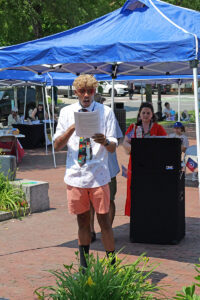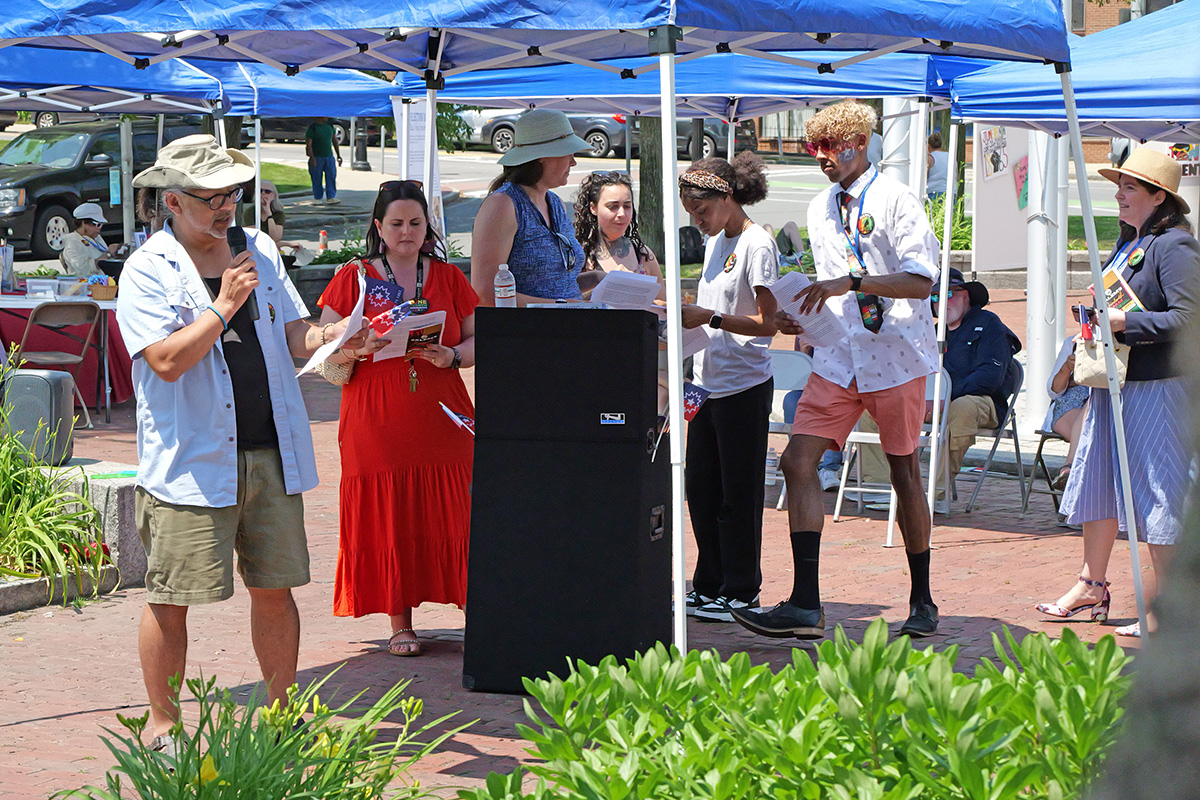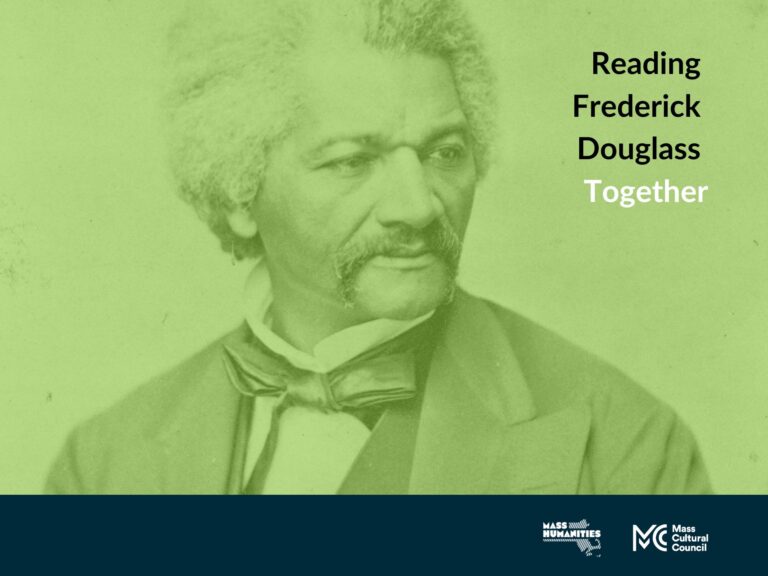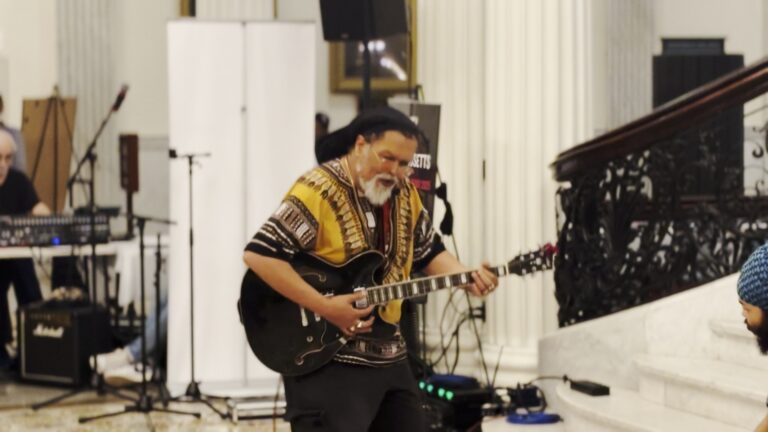More than 70 people gathered in the heart of Salem on June 18 to celebrate the Juneteenth holiday and reflect on the enduring power of Frederick Douglass’ 1852 address, “What to the Slave is the Fourth of July?”

A host of distinguished speakers delivered opening remarks at the event, including Salem Mayor Dominick Pangallo and Nicole McClain, president of the North Shore Juneteenth Association.
“Black history is American history. And Black history is Salem history,” said Mayor Pangallo. “The triumphs and the adversity, the contributions and the legacies of Black women and men throughout our nation’s history, is inextricably connected to the arc of America’s story. And we’re always working hard to better center and embrace Black history here in our community because it is such an important part of who we are.”
“After attending last year’s flag raising ceremony for Juneteenth here in Salem, I became inspired to use the position and the privilege I have of working within the mayor’s office to expand our Juneteenth into a celebration,” said Michael Corley, constituent services & special projects assistant for the city of Salem. Reading Frederick Douglass is just one example of how positive change begins at the grassroots level, he added.
Following the remarks, vocalist Janey David sang “Lift Every Voice and Sing,” a hymn known as the Black National Anthem that was written by James Weldon Johnson in 1900 and composed by his brother John Rosamond Johnson. McClain, Mayor Pangallo, and others raised several Juneteenth flags during David’s performance. McClain led a spirited reading of Douglass’ speech following the hymn.





